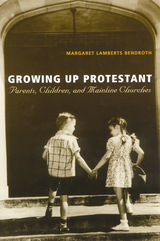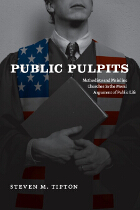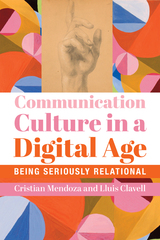
Home and family are key, yet relatively unexplored, dimensions of religion in the contemporary United States. American cultural lore is replete with images of saintly nineteenth-century American mothers and their children. During the twentieth century, however, the form and function of the American family have changed radically, and religious beliefs have evolved under the challenges of modernity. As these transformations took place, how did religion manage to “fit” into modern family life?
In this book, Margaret Lamberts Bendroth examines the lives and beliefs of white, middle-class mainline Protestants (principally northern Presbyterians, Baptists, Methodists, and Congregationalists) who are theologically moderate or liberal. Mainliners have pursued family issues for most of the twentieth century, churning out hundreds of works on Christian childrearing. Bendroth’s book explores the role of family within a religious tradition that sees itself as America’s cultural center. In this balanced analysis, the author traces the evolution of mainliners’ roles in middle-class American culture and sharpens our awareness of the ways in which the mainline Protestant experience has actually shaped and reflected the American sense of self.

Documenting a wide range of reactions to two radically different events—the invasion of Iraq and the creation of the faith-based initiatives program—Tipton charts the new terrain of religious and moral argument under the Bush administration from Pat Robertson to Jim Wallis. He then turns to the case of the United Methodist Church, of which President Bush is a member, to uncover the twentieth-century history of their political advocacy, culminating in current threats to split the Church between liberal peace-and-justice activists and crusaders for evangelical renewal. Public Pulpits balances the firsthand drama of this internal account with a meditative exploration of the wider social impact that mainline churches have had in a time of diverging fortunes and diminished dreams of progress.
An eminently fair-minded and ethically astute analysis of how churches keep moral issues alive in politics, Public Pulpits delves deep into mainline Protestant efforts to enlarge civic conscience and cast clearer light on the commonweal and offers a masterly overview of public religion in America.
READERS
Browse our collection.
PUBLISHERS
See BiblioVault's publisher services.
STUDENT SERVICES
Files for college accessibility offices.
UChicago Accessibility Resources
home | accessibility | search | about | contact us
BiblioVault ® 2001 - 2024
The University of Chicago Press









